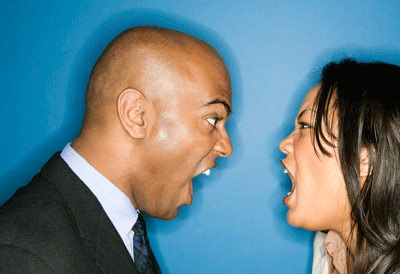NEWS AND EXPERTS — Can we talk? Joan Rivers made that catchphrase popular decades ago but in 2019 the answer to the late comedian’s heartfelt query appears to be a resounding no. Whether it’s tweets on social media, pundits on TV, politicians in Washington or parents at a youth soccer match, much of the communication we engage in today is ill mannered, inconsiderate, vicious and sometimes downright cruel or violent.
In short, civility is taking a beating.
“Incivility occurs because we lose sight of what it means to be an ethical person,” says Dr. Steven Mintz, author of Beyond Happiness and Meaning: Transforming Your Life Through Ethical Behavior. “Ethical people do not berate others. They certainly don’t promote violent behavior. Being willing to accept the ideas of others who may not agree with you is a sign of civil behavior. It values those with opposing views as members of humanity.”
Ellen DeGeneres made that point recently when she became the target of online outrage after she was seen enjoying a Dallas Cowboys football game with former President George W. Bush. Those taking umbrage with DeGeneres didn’t understand why she would hang out with someone whose beliefs and ideals are diametrically opposed to hers.
“When I say be kind to one another, I don’t mean be kind to the people who think the same way you do,” DeGeneres told a studio audience. “I mean be kind to everyone.”
An annual poll by Weber Shandwick, a public relations firm, found that 93 percent of Americans believe there is a civility problem in the country, and Mintz says whether people realize it or not, we all pay a price.
“Incivility can negatively affect happiness and impact wellness,” he says. “It can harm mental and physical health, affect productivity in the workplace, inhibit civil engagement, and, taken to an extreme, cause violence in our streets, schools, and places of business.”
Who is at fault for the decline of courteous communication? The Weber Shandwick poll found that 57 percent of Americans lay the primary blame on social media and the Internet. Other culprits they point to include behavior in the White House (50 percent), politicians in general (47 percent), news media (40 percent), political and social commentators (38 percent) and Hollywood celebrities (30 percent).
Mintz says all is not lost, though. He offers these tips for how everyone can do their part to stem the rising tide of incivility:
- •Think before speaking.
- •Focus on facts rather than beliefs and opinions.
- •Be open to others’ ideas without hostility.
- •Disagree with others respectfully.
- •Focus on the common good rather than one’s personal agenda.
“Finally, ask yourself how you would feel if the comments you are about to make or treatment of others went viral on social media,” Mintz says. “Would you be proud of it?”
Mintz is convinced the nation could use a good public debate on civility.
“Unfortunately, our leaders don’t seem to think it’s important enough to do,” he says. “The Democratic presidential debates haven’t touched on these issues, but what better way to address gun violence, workplace harassment and bullying than openly discuss how a lack of civility is tearing apart the basic fabric of society.”
Dr. Steven Mintz, author of “Beyond Happiness and Meaning: Transforming Your Life Through Ethical Behavior” has frequently commented on ethical issues in society and business ethics. His Workplace Ethics Advice blog has been recognized as one of the top 30 in corporate social responsibility. He also has served as an expert witness on ethics matters. Dr. Mintz spent almost 40 years of his life in academia. He recently retired as a Professor Emeritus from Cal Poly State University in San Luis Obispo. For more information, visit: www.stevenmintzethics.com.
